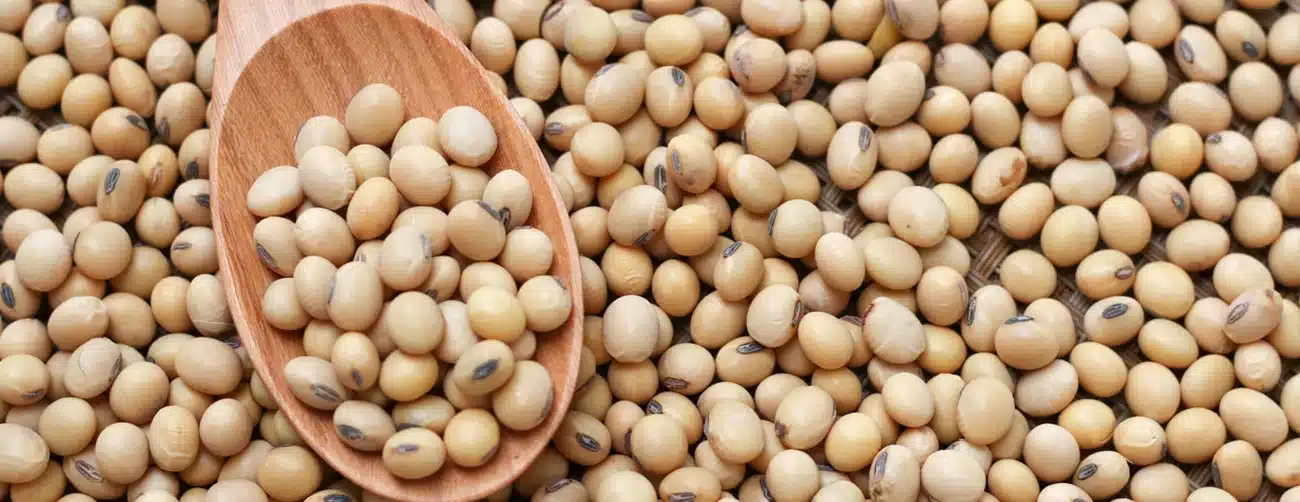Blog
Is soy OK to eat?

Soybeans are legumes that grow in pods on the stalks of tall plants. They’re a good source of protein, and they have been eaten for thousands of years. Soybeans can be eaten whole, cooked into tofu or tempeh (fermented soybean products), or made into soy milk, tofu ice cream and many other foods.
Soy is a protein source that’s commonly used in Asian dishes, but many people are still concerned that it’s bad for you.
Soy is a plant protein source commonly used in Asian dishes. Many people are still concerned that it’s bad for you, but the truth is that soy food and supplements can contain natural toxins called “protease inhibitors,” which are poison to insects and animals but not humans. Soybeans also contain goitrogens, which can cause thyroid problems in humans. Dried soybeans or tofu made from fresh soybeans in their natural state have little risk of toxicity due to these factors because they don’t contain protease inhibitors or goitrogens at high enough levels to be harmful (although there are some exceptions).
In fact, soybeans have many health benefits. They’re a good source of iron and protein, and they also contain B vitamins.
The most common concern about soy is that it contains phytoestrogens — plant compounds that have a similar structure to the female sex hormone estrogen.
The most common concern about soy is that it contains phytoestrogens — plant compounds that have a similar structure to the female sex hormone estrogen. Phytoestrogens can act like estrogen in the body, and some research suggests they may cause hormone imbalances and increase breast cancer risk.
However, not all researchers agree on this point. Some studies show no link between soy consumption and increased risk of breast cancer or other health issues related to hormone imbalance (like infertility). And other studies find that some types of phytoestrogens actually decrease breast cancer risk by blocking the growth of tumors or reducing their size after diagnosis.
Soybeans have a high phytoestrogen content compared with other beans or legumes; however, you would need to eat an enormous amount of soy foods every day (more than two cups) for these effects to occur. So unless you’re eating large amounts daily throughout your lifetime — which isn’t recommended anyway — it’s unlikely that eating soy will cause problems due only its phytoestrogen content
. And even if you did, other foods you eat may offset the effect. For example, research shows that eating soy with a source of vitamin K (such as broccoli) can block some of the negative effects of phytoestrogens.
Soy food and supplements can also contain natural toxins called “protease inhibitors,” which are poison to insects and animals but not humans.
Soybeans contain protease inhibitors, which are poison to insects and animals but not humans. These natural toxins are used in soy foods and supplements to prevent spoilage and extend the shelf life of processed foods. Protease inhibitors also have been shown to have some health benefits for humans, including helping reduce cholesterol levels in the blood.
Phytoestrogens are plant compounds with a similar structure to the female sex hormone estrogen; they can have estrogenic effects on the body when consumed in large quantities over time (although there’s no evidence that most people who eat soy experience any negative effects from consuming phytoestrogens).
The most common effect of consuming soy phytoestrogens is to reduce the activity of enzymes that stimulate cell division, which may help prevent cancer. The phytoestrogens in soy also have been shown to reduce inflammation and protect against cardiovascular disease by lowering cholesterol levels.
Soybeans also contain goitrogens, which can cause thyroid problems in humans.
Soybeans also contain goitrogens, which can cause thyroid problems in humans. Goitrogens are naturally occurring plant compounds that can disrupt the thyroid’s ability to make hormones. This disruption can lead to hypothyroidism and thyroid cancer.
Goitrogenic foods include soybeans and other legumes like peanuts and lentils; cruciferous vegetables like kale, cabbage and broccoli; millet grain; sweet potatoes (not yams); cassava root starch; spinach leaves with stems attached; strawberries without hulls or tops removed; peaches without skin removed from stone fruit pits (coconuts).
How do you avoid food sensitivities? Avoiding all of these foods at once may seem impossible, but there are ways around it! In order to enjoy soy milk without getting sick of it fast we recommend using coconut milk instead because it’s much lower in calories than regular cow’s milk alternatives while still providing similar nutritional benefits like calcium content per serving size along with having less sugar content overall compared
to both almond based drinks like Califia Farms Vanilla Almond Milk – 32 oz bottle ($8)and cashew based ones such as Califia Farms Vanilla Cashew Milk – 32 oz bottle ($10). They also have different flavors so if vanilla isn’t your thing then try something else!
Dried soybeans or tofu made from fresh soybeans in their natural state may be fine to eat in moderation — up to a few times per week — but processed foods and supplements should be avoided.
Soy is a good source of protein, fiber, and other nutrients. It may help lower cholesterol and the risk of heart disease and stroke. However, soy can be high in fat; some processed foods contain high levels of sodium; eating too much soy at one time might cause bloating or gas; it may also interfere with medications such as blood pressure drugs (ACE inhibitors).
Pregnant women should not eat large amounts of soy because it may affect brain development in the fetus. Some people are allergic to soybeans or products containing them such as tofu made from fresh beans rather than dried ones which have been soaked for several hours before being cooked thoroughly so that all traces of mold have been removed
soybeans are high in fat, but the majority of this fat is polyunsaturated and monounsaturated. This means that it’s good for your heart and can help lower blood cholesterol levels. Soy also contains some protein, fiber and other nutrients.
Takeaway:
Soy is safe to eat in moderation, but it may cause problems with your hormones and thyroid. If you eat soy foods, do so in small amounts and avoid soy supplements. Soy has been shown to cause a range of adverse reactions, including thyroid dysfunction (hypothyroidism) and goiters (enlarged thyroid glands).
Soy contains goitrogens–compounds that interfere with the production of iodine by the thyroid gland. The effects of these goitrogens are most pronounced when they’re consumed in large quantities over long periods of time; however, even small amounts can cause symptoms like fatigue and weight gain if consumed regularly over many months or years. In addition to goitrogens being present naturally within raw soybeans themselves, they’re also added during processing at levels higher than those found naturally growing wild on their own due to increased demand for foods containing healthier alternatives such as tofu ice cream bars made using organic ingredients sourced locally grown right here in California near Los Angeles County where many people live today due their homes having been built recently on top land formerly occupied by farms owned by families who lived there before them back centuries ago when first settled by Europeans looking for gold mines located nearby California riverbeds after crossing mountains separating us from Mexico back then known as New Spain until independence from Spain came about later when rebels fought against Spanish rule winning independence eventually making way for American expansion westward towards Oregon Trail migration routes leading settlers away from danger areas populated primarily by Native Americans living peacefully among nature’s bounty before Europeans arrived here seeking refuge after fleeing persecution elsewhere in America.
Soy is a versatile food that can be part of a healthy diet, but only if you eat it in moderation. If you’re concerned about the effects of soy on your health or just want to cut back on processed foods, try eating more fresh fruits and vegetables instead.




